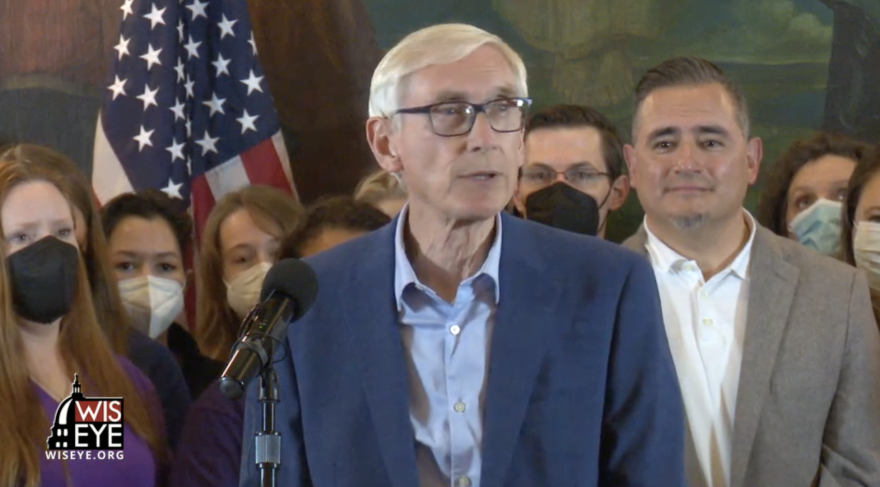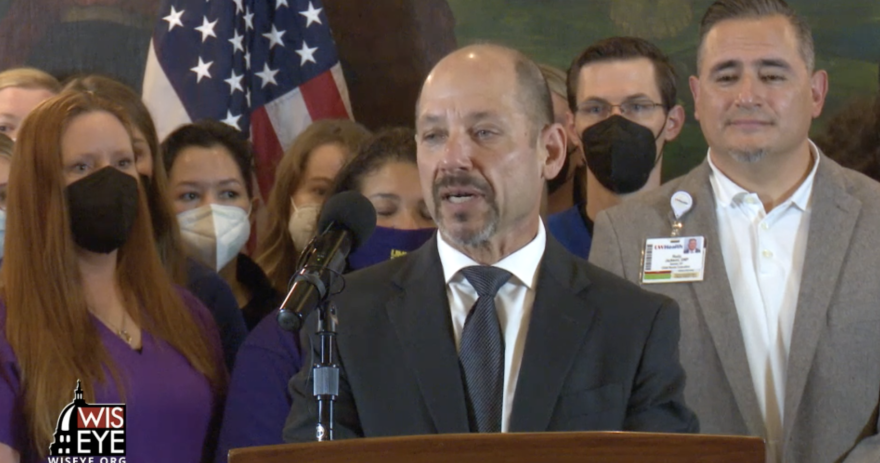A planned nurses walkout in Wisconsin has been averted, and now labor and management say they'll work together on possibly getting a union recognized. There are connections to the controversial Act 10 legislation passed eleven years ago under Republican Gov. Scott Walker.
The matter involves hundreds of nurses who work for UW Health. UW-Madison's large health care system treats more than 700,000 patients yearly at various hospitals and clinics. The nurses recently announced a three-day strike would start Tuesday if administrators wouldn't negotiate with the nurses union, which is part of the Service Employees International Union (SEIU).
Under Act 10, which attacked most public sector labor groups in Wisconsin, Republicans removed UW Health from having to recognize unions and negotiate pay and working conditions.

But Democratic Gov. Tony Evers, who defeated Walker four years ago, and is in a presumably close race for reelection against Tim Michels, announced Monday he'd been meeting over the weekend with UW Health nurses and administrators at the state's Executive Residence in Madison.
"To find a solution that gives greater voice to nurses in the workplace, strengthens the relationship and communication between workers and management, and ultimately assured that the strike would be averted," Evers said at a State Capitol news conference carried on Wisconsin Eye.

UW Health CEO, Dr. Alan Kaplan, said one key to avoiding the work stoppage is his promise to see if the nurses union can be recognized.
"We said for over a decade that the legal situation does not allow us to recognize a union. I know others have different opinions. This agreement finally sets forth a path to resolve the question once and for all," Kaplan said.
The Wisconsin Employment Relations Commission is expected to look at the nurses contention that UW Health is not banned from recognizing their union, and whether a state labor law recognizing collective bargaining for public sector workers—it's often called the Peace Act—covers the health care provider.
This year, responding to Evers' request for a legal opinion, Democratic Atty. Gen. Josh Kaul said the UW Hospitals and Clinics Authority, created in 1995 to oversee what became UW Health, could voluntarily engage in collective bargaining.
UW Health nurse Colin Gillis said he believes serious, meaningful and productive discussions are already underway.
"We are, starting now, starting already, starting yesterday, getting to the table with management, and starting to find solutions together," Gillis said.
The Wisconsin AFL-CIO praised the agreement between the nurses and UW Health, calling it "historic."

But University of Wisconsin School for Workers Professor Michael Childers said Monday's agreement to talk more seems like a very unique circumstance.
"So, I would say, as far as its broad applicability, I would say maybe it's just one other aspect in the pattern we've seen around the country in terms of workers wanting to be recognized and have a say over their terms and conditions of work—whether we talking about the workers at the Amazon Staten Island facility, or the baristas at various locations around the country—who've come together and said, 'You know, for us to have the legal right to have a say at work, we need to form a labor union,'" Childers told WUWM.
It's expected to take a few months to get some answers in the UW Health case, or longer if the two sides wind up in court. But the three-day walkout of nurses is not happening in Wisconsin this week.
Nurses at 15 hospitals in Minnesota are on a three-day strike—scheduled to end Thursday—over issues of wages, safety and staffing.






